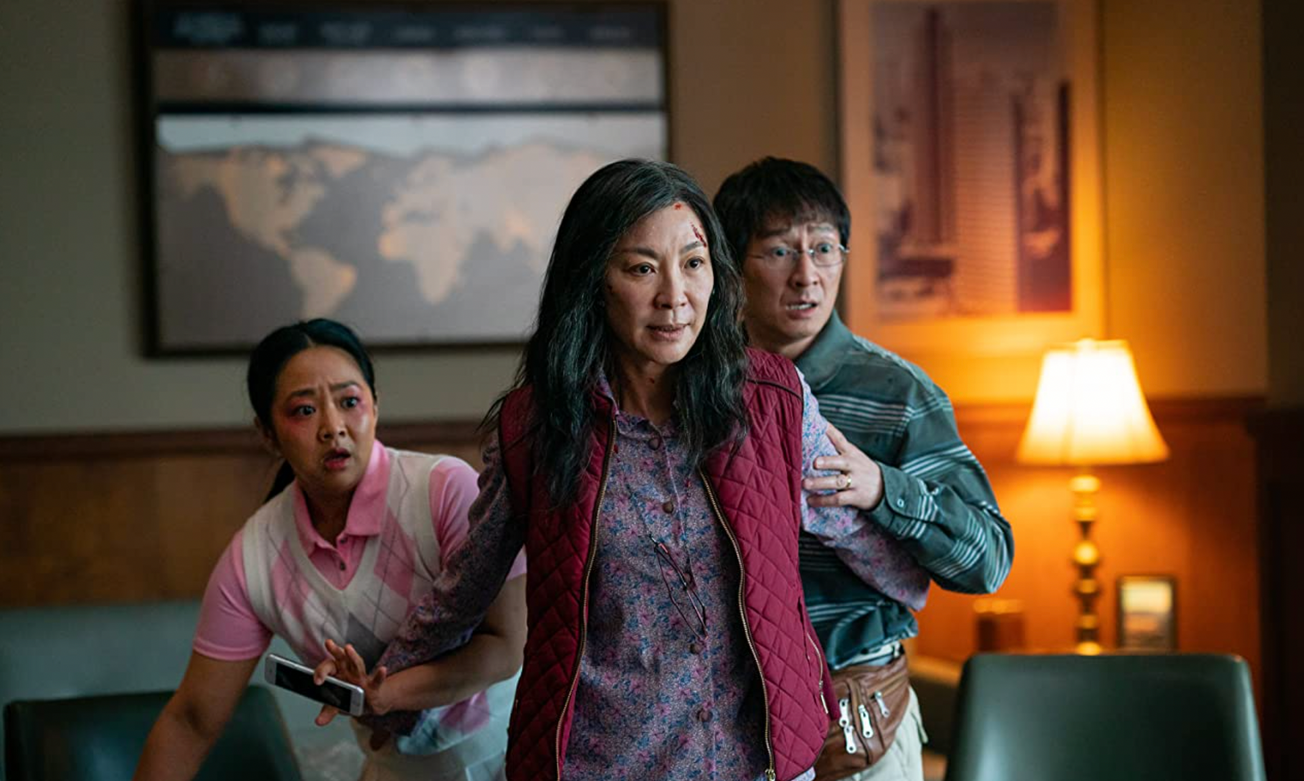By Ben Carpenter, Film & Television Editor
Making a profound emotional impact on your audience and also entertaining their socks off seem to be mutually exclusive in contemporary Hollywood. Yet with Everything Everywhere All at Once, The Daniels’ Michelle Yeoh led trip into the multiverse, such standards seem to have been shattered, with the all consuming title epitomising the bizarre experience.
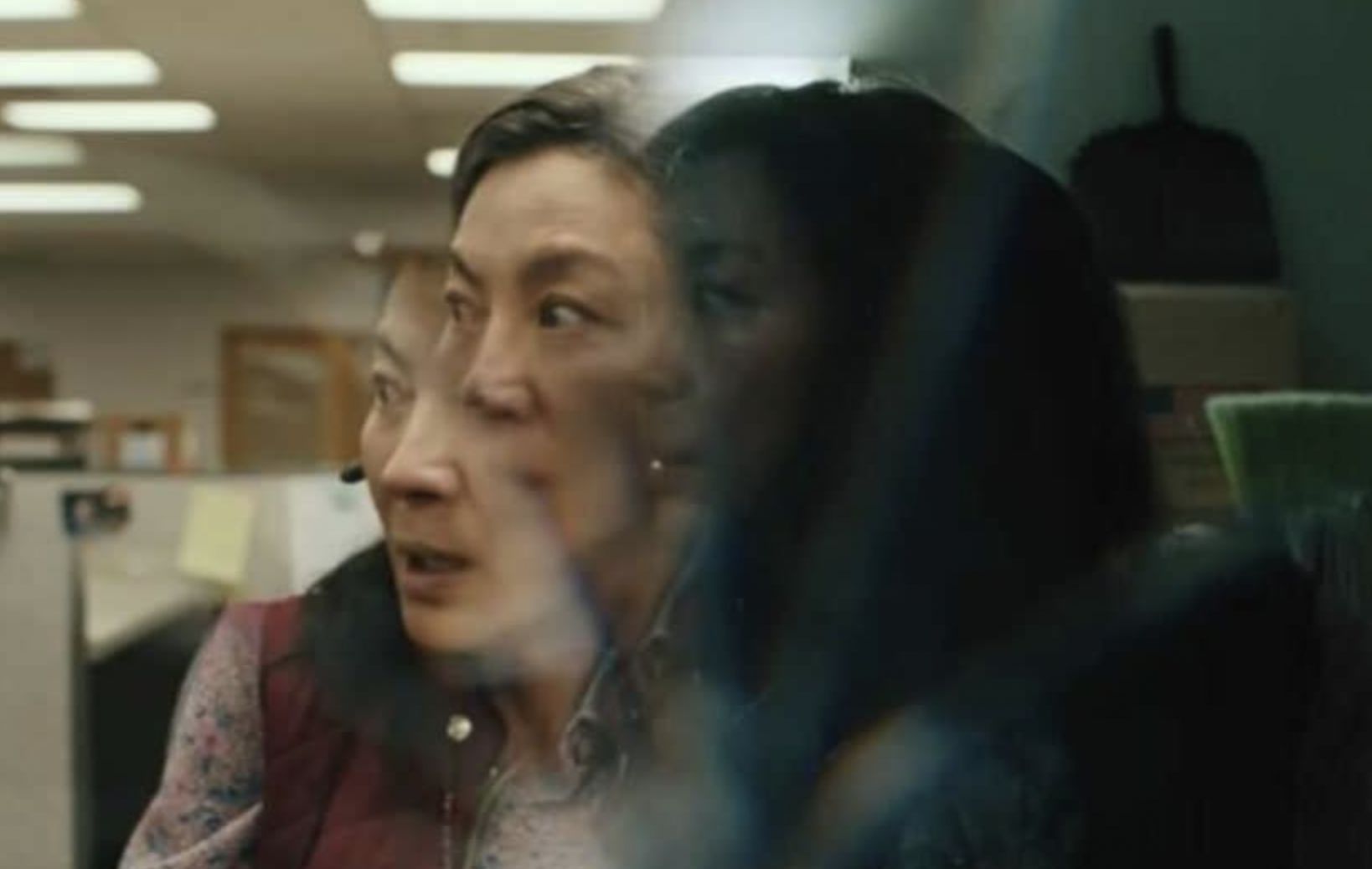
To synopsise a plot like this one is a meaty task, but here is an attempt. Following Evelyn Yang (Michelle Yeoh), an ageing Chinese-American woman who runs a laundromat with her seemingly inept husband, Everything Everywhere All at Once tackles themes of alienation and existentialism via the means of the Yang family attempting to keep their business afloat. Upon a visit to the IRS for an audit, Evelyn is visited by an individual from an alternate universe who asks for her help in defeating a monster that an alternate Evelyn has had a hand in creating.
In participating in such a cause, all of the alternate universes are blended into one, with these universes being created as a product of potential decisions Evelyn could have made over her lifetime. If you’re confused by this, join the club. And you may be happy to hear that this confusion is very much the point.
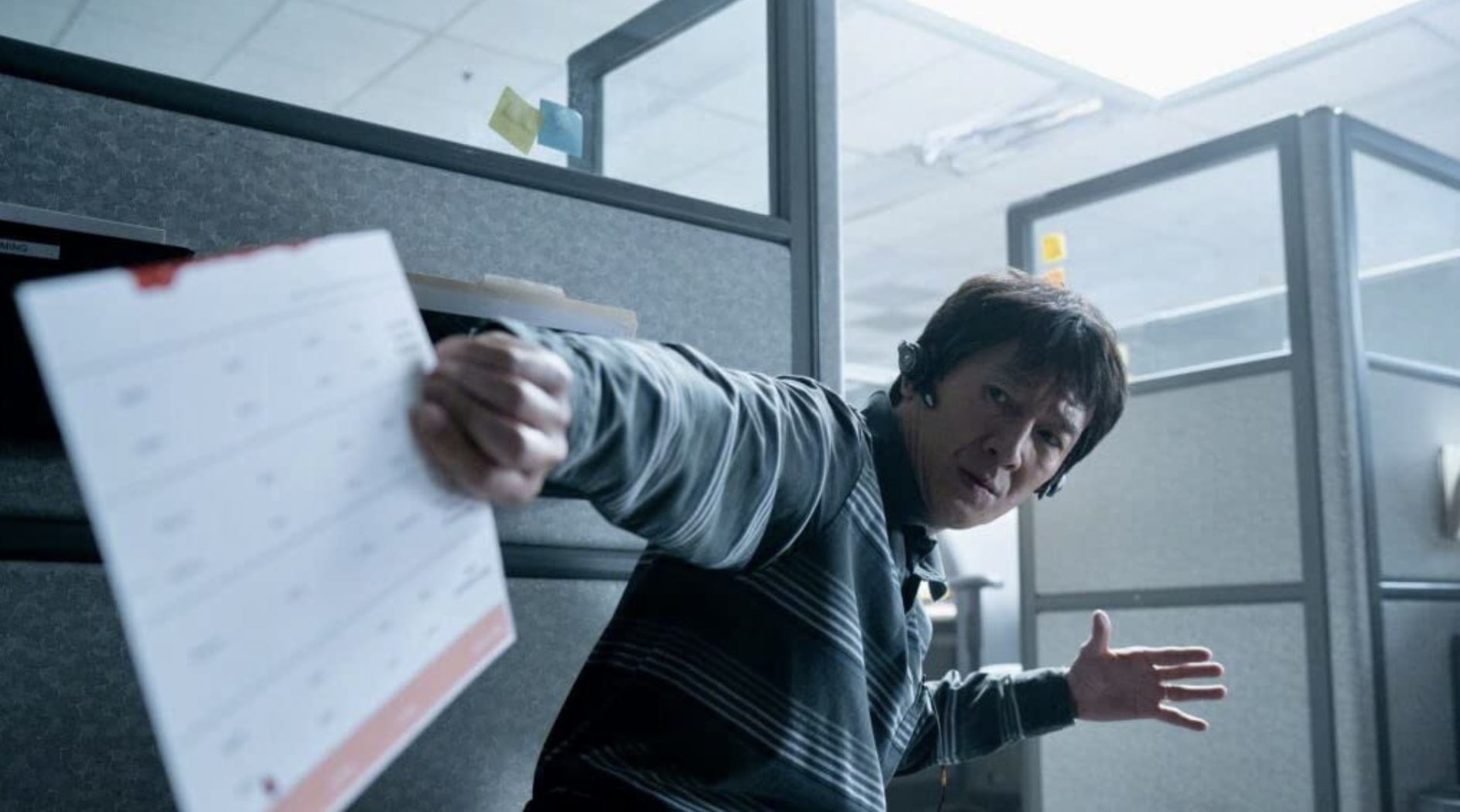
In splitting the film’s narrative into three parts, the viewer is able to better understand the themes being delivered. As Yeoh battles enemy after enemy and attempts to make sense of her situation, her relationship with her daughter remains the focal point, with traditional values and the varying ways her life could have taken shape providing nuance to some of the best technical filmmaking I have ever seen.
On a surface level, Everything Everywhere All at Once is marvellous in its own right, not just in its visual appeal and masterful use of current themes but as a piece of cinematic entertainment. But in comparison to other fantasy films such as those of the mega-corporate Marvel franchises, The Daniels’ film proves that splendour and expense are still capable of being used as a means of deeper intellectual expression.
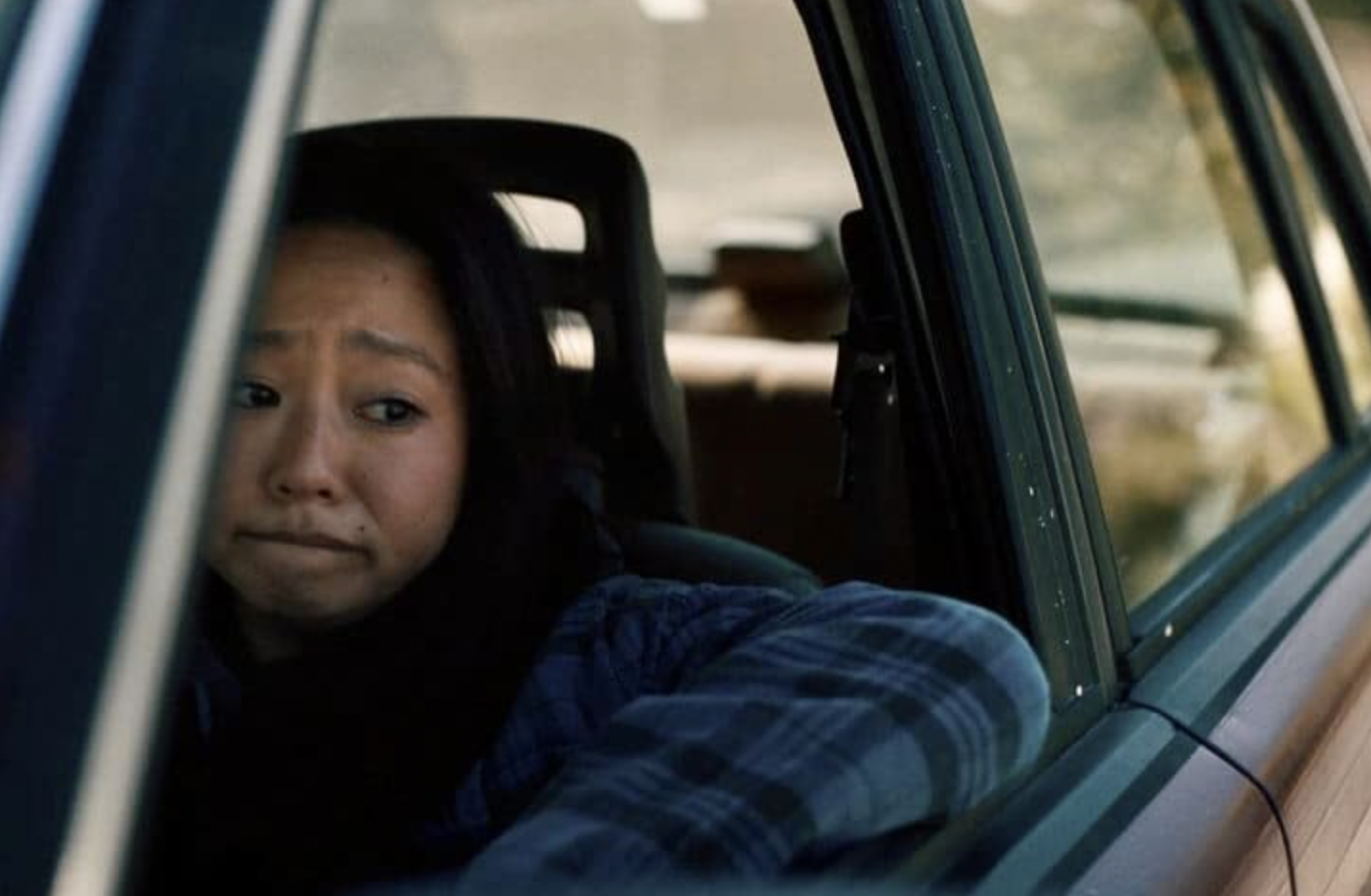
Jumping through an incomprehensible amount of narratives, Yeoh’s magnetism grounds the almost ungroundable, honing in on over 30 years of acting experience to deliver the slightest fragments of emotion via the tiniest looks and glances. In delivering such expertise, layers of captivating production design, choreography and editing are pulled loose to reveal what the film truly encapsulates: that being the importance of appreciating the life we cultivate around us.
With Yeoh embodying the working-class drive that so many of us rely on for survival, her personal relationships have fallen by the wayside. In delving deep into the possible ways her life could have worked out, it becomes clear to Evelyn that none of that truly matters, for all she can really do is experience what occurs here-and-now.
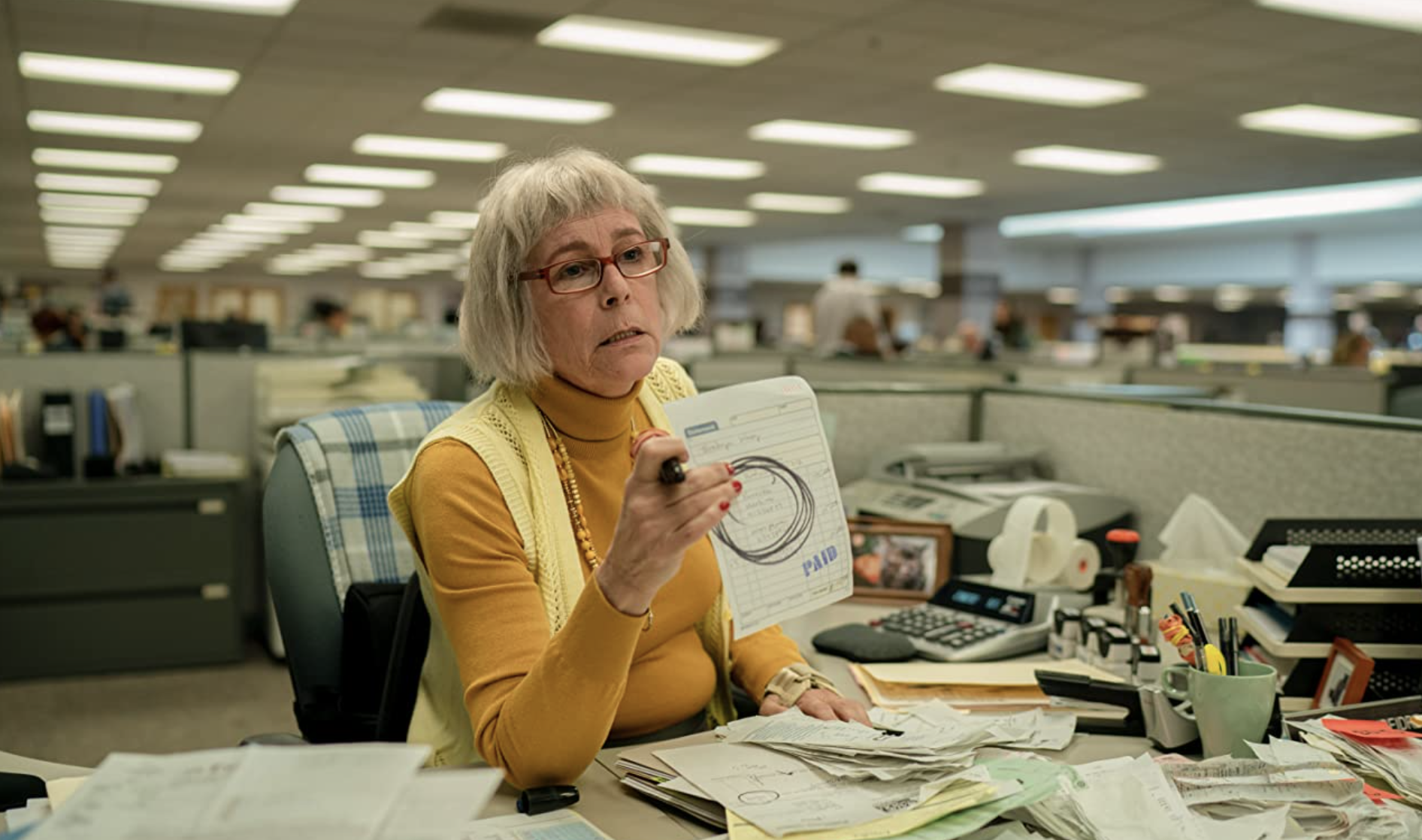
In channelling the sentiment Deirdre (Jamie Lee Curtis) repeatedly yells at Yeoh’s Evelyn, Everything Everywhere All At Once powerfully asks the audience ‘are you listening?’ to the world around you. In response, I would say I’m trying Deidre, and it is films like these that remind you of the importance of such a task.
Featured Image: IMDB
Do you feel Everything Everywhere All at Once lives up to the hype?

